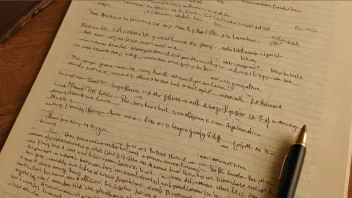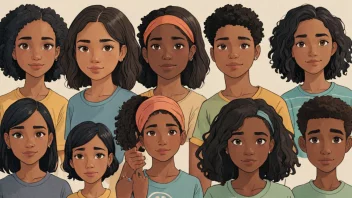As technology continues to reshape the way we communicate and consume information, the literary landscape is no exception. Social media has rapidly evolved from a platform for casual sharing to a powerful tool influencing various forms of storytelling, particularly in the realm of mystery fiction. This genre, known for its intricate plots and suspenseful twists, has seen a transformation in how stories are crafted and experienced due to the connectivity and immediacy that social media offers. In this article, we will delve into the ways social media has impacted mystery storytelling, from plot development and audience engagement to the creation of communities that thrive on unraveling clues together.
The Evolution of Mystery Storytelling
Mystery stories have captivated readers for centuries, with roots tracing back to ancient literature. From Edgar Allan Poe’s pioneering works to Agatha Christie’s classic whodunits, the genre has traditionally relied on suspense, red herrings, and surprise endings. However, the advent of social media has introduced new dynamics that challenge the traditional methods of storytelling. Writers now have the opportunity to engage directly with their audience, allowing for real-time feedback and interaction that shapes both the narrative and its reception.
Plot Development in the Age of Social Media
One of the most significant impacts of social media on mystery storytelling is the way it influences plot development. Writers can use platforms like Twitter, Instagram, and TikTok to share snippets of their stories, tease upcoming plot twists, and even conduct polls to determine the direction of their narratives. This interactive approach not only helps authors gauge audience interest but also fosters a sense of investment among readers. For instance, a mystery writer might post a series of clues on social media, inviting followers to solve the puzzle alongside the characters in the book.
Building Suspense and Engagement
The nature of social media allows for the creation of immersive experiences that heighten suspense. Authors can drip-feed information over time, creating anticipation and excitement for upcoming releases. This strategy has led to the creation of serialized mysteries, where stories unfold in real-time, and readers are left eagerly awaiting the next installment. Platforms like YouTube and Twitch enable live readings and discussions, where authors can directly engage with fans, further blurring the lines between creator and audience.
Utilizing User-Generated Content
The rise of user-generated content has also transformed mystery storytelling. Readers are no longer passive consumers; they can create fan theories, fan art, and even alternative endings. This participatory culture encourages a collaborative exploration of narratives, where fans can share their interpretations and insights. Some authors even incorporate fan theories into their work, acknowledging the creativity and passion of their readership. This feedback loop enriches the storytelling process, making readers feel more connected to the narrative and its characters.
Social Media's Role in Community Building
Social media platforms have become hubs for communities of mystery enthusiasts. Groups and forums dedicated to discussing plot twists, character arcs, and theories have sprung up, fostering a sense of belonging among readers. These communities often host online events, such as book clubs or mystery-solving challenges, where fans can collaborate and compete in deciphering clues. This sense of camaraderie not only enhances the reading experience but also encourages the discovery of new authors and works within the genre.
The Influence on Emerging Authors
For emerging authors, social media presents a unique opportunity to reach audiences that were previously difficult to connect with. Aspiring mystery writers can showcase their work, share their writing process, and build a following even before their books are published. This accessibility democratizes the literary world, allowing diverse voices and stories to emerge. Authors can engage directly with readers, receive feedback, and develop a loyal fanbase that supports their work from the ground up.
Challenges and Considerations
Despite the many benefits, the integration of social media into mystery storytelling also presents challenges. The immediacy of social media can lead to the pressure of constant engagement, which may detract from the creative process. Additionally, the potential for spoilers and premature plot revelations can undermine the suspense that is essential to the genre. Authors must navigate these challenges carefully, balancing their desire for interaction with the need to preserve the mystery that keeps readers hooked.
The Future of Mystery Storytelling
As we move forward, the relationship between social media and mystery storytelling will likely continue to evolve. With technological advancements and changing reader preferences, authors will find innovative ways to weave social media into their narratives. The potential for augmented reality, interactive storytelling, and even virtual reality experiences could redefine how mysteries are told and experienced. The possibilities are endless, but one thing is clear: social media has permanently altered the landscape of mystery fiction, creating a dynamic interplay between authors and readers that enriches the genre.
In conclusion, social media has had a profound impact on mystery storytelling, transforming how plots are developed, how suspense is built, and how communities are formed. While it presents unique challenges, the opportunities for engagement and creativity it offers are unmatched. As readers and writers navigate this new literary terrain together, the future of mystery fiction promises to be as thrilling and unpredictable as the stories themselves.






